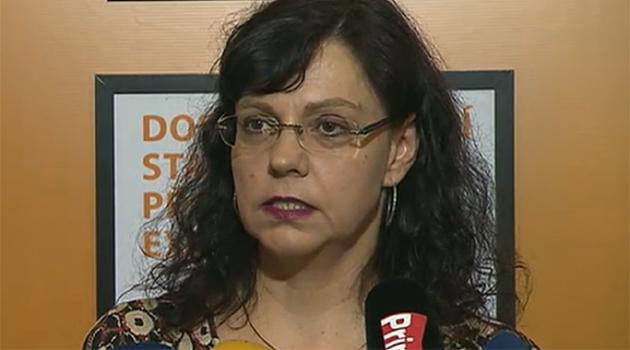Design of a new social housing model for the Czech Republic began yesterday. A commission of representatives from ministries, municipalities, NGOs and Regional Authorities has been set up to draft it.
The basic parameters should be ready by the end of the year. The model will count on building some new social apartment units.
Czech Labor Minister Michaela Marksová Tominová (Czech Social Democratic Party – ČSSD) informed the press of the commission prior to its first meeting yesterday. According to the plan, the outlines of a social housing law should be on the table next year during the second quarter and the wording of the law should be ready one year after that.
"There should be agreement on the essential, practical parameters by the end of the year. We should be able to produce them by then, time is of the essence," the minister said.
The commission, which is led by Deputy Labor Minister Zuzana Jentschke Stöckelová, will meet regularly. Its working groups will meet more frequently.
The working groups will focus on the issues of social work, standards for social apartment units, and welfare. The minister said some of the social housing stock should be comprised of new apartment units to be built.
"A primary agreement must exist on what the roles are of the municipalities, the nonprofits, the state, and other entities. One of the biggest problems is arranging for financing. Even though there have been some social housing ideas in the past, everything always failed for lack of financing," the Deputy Minister said.
There is currently no social housing program in the Czech Republic. People who lose their housing often end up in overpriced, unsuitable residential hotels.
Recently senior citizens have been among those living in these housing options of last resort. Experts estimate that around 100 000 people live in residential hotels in the Czech Republic today.
State expenditures for housing subsidies and the number of people applying for them have risen sharply. While in 2009 an average of 27 340 people received a housing subsidy of CZK 1 732 monthly, last year the state paid subsidies to 65 100 people worth an average of CZK 3 608 per month.
In 2012 a total of CZK 1.67 billion was disbursed in such welfare, with more than CZK 2.81 billion worth paid out last year. In the Czech Republic, in addition to subsidies, there are also housing allowances.
These are paid to either a property owner or to a tenant who is permanently registered at an address, as long as 30 % of the tenant’s income or that of his or her family (in Prague, 35 %) is not enough to cover the cost of adequate housing. The amount of the allowance corresponds to the difference between the established housing costs based on the size of the dwelling, the number of persons in the household, and the cost of utilities, and the person’s income multiplied by either 0.3 or 0.35.
Those who are entitled to a housing allowance receive an amount to make up the difference between their costs and their income. This welfare measure is supposed to compensate for housing costs so people will have money left over to live on.
The commission will first evaluate the existing concepts and proposals for social housing. The most recent such proposal was drafted last year by the Regional Development Ministry.
That ministry believes special social housing apartment buildings should be created. Experts have rejected that idea.
According to the critics, the Regional Development Ministry’s plan would result in more ghettos and residential hotels. The Labor Ministry has previously proposed that people should be entitled to social housing once they have been classified as homeless by a town hall.
The municipality or the state would then help such people by ensuring they are provided an apartment and welfare contributions to maintain it. The Deputy Labor Minister said it is necessary to define the group of persons who would qualify for such aid.
Services and social work directly with families should also be enhanced. Linda Sokačová of the Platform for Social Housing believes the problem of residential hotels is not the only issue that needs to be addressed.
Sokačová said the commission should stop reviewing who exactly is asking for aid and should focus instead on the situation such people are in. She considers it appropriate to establish limits on income and housing costs.
"The backbone of social housing should be accommodation in standard apartments. Our aim is to create the most optimal solution so it cannot easily be rewritten by MPs and senators into a completely different legal norm," Sokačová said.
According to Vít Samko of the Czech-Moravian Confederation of Trade Unions, social housing is a topic for the unions as well. In 2012 trade unionists put forth a program proposing the construction of 50 00 low-income apartment units.
Trade unionists believe such a move would not just help homeless people, but would help the economy as well. The project would revive the construction industry and many people would be employed by it.
